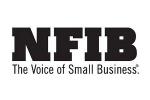NASHVILLE, Tenn. — While tax laws and regulations can seem impenetrable to many who aren’t in that field, there are savings, and gains, to be made for owners of drycleaning businesses who pay attention to the rules of this particular game.
During her recent talk, “Tax-Saving Strategies for 2024: Choosing the Right Entity and Hiring Your Kids,” presenter Jamie Trull offered owners of small businesses, such as most dry cleaners, some things to look for (or look out for) when it comes to setting up a company and maintaining its cash flow. The webinar was hosted by the National Federation of Independent Business (NFIB).
Trull was the director of finance for a Fortune 500 company and is now the owner of Balance CFO, where she is a financial literacy coach and profit strategist. In Part 1 of this series, she described the various business entities available to companies. In Part 2, we dove into how these business structures and treatments can affect a company’s tax liability. Today, we’ll conclude by looking at some of the benefits of employing minor children — both for today’s taxes and for their future.
Hiring Your Child
Trull believes that hiring children for the family business — minors under 18, specifically — is one of the greatest advantages of owning a business.
“This might be one of my favorite tax savings opportunities,” Trull says, “and that's because I also I use this one — this is something that I personally do. I hired my kids last year. They are 10 and 7 years old, and they were both on my payroll. They don't make a ton, but they make enough.”
Part of the advantage of this is that money that would otherwise be taxed at the parent’s tax rate is shifted to someone in a tax bracket that is more than likely 0%.
“If you're paying them $14,600 a year or less — that's the standard deduction for the year — then they are going to pay $0 in income taxes,” Trull says. “They're completely exempt. And, in most cases, they won't even need to file an income tax return unless they have other income that they need to claim.”
To do this, Trull stresses that the children actually have to be on the payroll, with W-2 forms. “You don't want to hire your kids as a contractor,” she says. “It actually negates some of the tax benefits if you do that, and they're more likely to have to file a tax return if they are a contractor. It's hard to defend being a contractor when your kid is 12 — they're not able to operate effectively and efficiently.”
The easiest type of business entity for taking advantage of this type of employment is the sole proprietor LLC, because it’s not necessary to pay payroll taxes for the owner’s children. S Corps and other business entities can still take advantage of this tax law, but there are additional steps that must be taken, which Trull addressed later in her presentation.
The Math
Trull offered the following figures to demonstrate tax savings, using the $14,600 figure mentioned earlier.
If the $14,600 is taxed normally, the tax liability, considering income (25%, for $3,650) and Self-employment (15.3%, for $2,234) taxes, comes to $5,884. If this amount is paid to the child, that money is saved from going to the IRS.
“If you only want to pay your kid $100 a month, this might not be worth it,” Trull says, “because we're talking about payroll again, and there are some costs involved with it. But if you plan on paying them a decent amount — a few thousand, at least — it's probably going to be in your best interest to do this as long as you set it up correctly.
Education and Bonding
Besides the tax savings, Trull says that involving children in the family business has many other benefits.
“It’s giving your kids responsibilities in your business and helping them learn and manage money,” she says. “My 10- and 7-year-olds are on my payroll, and it has been one of the best experiences, especially for my 10-year-old son, who really gets it and does more for the business. It’s been a great bonding experience, but it also lets you teach them about work, making money, and what to do with money once they have it.”
Trull knows that paying a minor a $14,600 salary sounds extreme to most.
“First of all, I don't pay him that much,” she says. “Also, you can pay things like their sports fees or camp out of that money — anything you're paying for your kid, you can pay it out of that money.”
Parents can also start a Roth IRA for the child out of those funds, and Trull says this is where the true magic happens.
Generation-changing Wealth
For Trull, setting up Roth IRAs for her children is the main goal of paying them.
“This is my favorite thing,” she says. “Both of them have custodial Roth IRAs that I am contributing to. And you can only contribute to a Roth IRA if you have earned income.”
In a Roth IRA retirement fund, money is generally taxed as it goes into the fund but is not taxed upon distribution at the age of 65, meaning that the growth, as long as conditions are met, grows tax free.
Parents cannot just start a Roth IRA in their children’s name, Trull says. Rather, the money must be earned by the owner of the fund. If the parent is paying the child, however, they can open up a custodial Roth IRA and put the child’s earned income into it.
“I cannot overstate the benefit of being able to put money into this at a really early age,” Trull says. “You are the best parent ever if you're somebody doing this, because you're setting up their future. You’re allowing the compound interest to snowball for them.”
Trull uses the example of paying the child $7,000 (the maximum Roth contribution allowed in 2024) for nine years, for a total of $63,000. The expected rate of return, based on the average returns on the S&P over a 30+ year period, is 9%. The value of that Roth IRA at the age of 65, if no further contributions are made by the child as an adult, would be $5,233,461.
“This is tax free when they put it in (because they are in the 0% bracket as minors), and money grows tax free in a Roth IRA,” Trull says. “You are setting them up with generational wealth creation.”
This contribution works because children have the most important element on their side for compound interest — time.
“This is an amazing, powerful tool that we, as business owners, can give to our kids,” she says.
Finding Positions for Children
One of the stipulations of employing children in this manner, Trull cautions, is that they actually have to do some work — this isn’t a “no show” position.
“They must actually be employed and paid a fair wage for the job,” she says. “Documentation is critical to support what they’ve done and the amount they were paid for it. I have a worksheet that I use that goes into all the detail of what they worked, when they worked, how many hours, and what role in the business were they performing, along with how much were they getting paid for that role?”
In the event of an audit, Trull says, this is vital information to have on hand.
“I have that all supportable and ready If I'm ever audited, no problem,” she says. “People think that hiring your kids is an IRS red flag. It isn't. But if you are audited, you do want to have that support for how you calculated that.”
So, what roles are well-suited for children? Trull gave the following examples:
Administrative Assistant — Your child could help with various admin and organizational duties.
Graphic Design/Social Media — Depending on your child’s age, they may be able to do some graphic design or manage social media for you. “My son does light graphic design for my business,” Trull says. “He’s savvy in Canva and can sit in there and make graphics for my business. It's crazy the things these kids can do. Oftentimes, they're way more tech-savvy than we are.”
Greeting Customers/Customer Service — If you have a physical location, your child could help with greeting or customer service. “I work with a lot of people in the pet sitting business,” Trull says as an example, “and there are so many things kids can do if you own a dog kennel. They can feed the dogs. They can play with the dogs. They can do all kinds of things. And those are all employable jobs.”
Model/Actor — If your child’s image or likeness is used for marketing purposes, you can pay them for this. “This role can allow for a higher rate of pay than some other roles,” Trull says. “This is a big portion of where my kids’ paycheck comes from, when I'm taking pictures and using them in my marketing materials. My son has done YouTube videos with me, and I pay him for it. You can pay them on a project basis, rather than an hourly basis.”
While kids working in a parent’s business are exempt from some labor laws, some still apply, Trull says.
“Kids working for a parent’s business can typically work at any age,” she says. “However, the types of work and hours can still be restricted. Check state and local laws.”
Usually, children can't work under 14, Trull says, but that is one of the exemptions that parent-owned businesses have.
“Some labor laws do apply specifically around things like dangerous work environments,” she says. “If they're over 14, they can work for any business, including grandparents or anything like that. But under 14, it does need to be a parent-owned business to get that exemption.”
Family Management Company (FMC)
As previously stated, single-owner LLCs can take advantage of the tax code when hiring their children directly. Other business entities can also do this, but there are some extra hoops to jump through.
For owners of companies taxed as S Corps, who are in multiple-owner situations or grandparents wanting to employ their grandchildren, it might be necessary to form what is called a Family Management Company, or FMC.
An FMC is essentially another company that contracts the children from the parents’ (or grandparents’) company. The primary family business pays the FMC, and the FMC pays the children.
“It's an added, extra layer,” Trull says. “It’s a pass-through company. It seems silly, but again, it allows you to take all the benefits of the exemptions you get for a family business, even if you have an entity structure that might not quite fit what those rules and regulations are.”
While there is additional complexity here, Trull says it's really not that hard to create — and once you get it set up, it can be very much worth the trouble.
“Is it worth it for the tax benefits? Maybe? Is it worth it for what you can do for your kid? I think absolutely.”
For Part 1 of this series, click HERE. For Part 2, click HERE.
Have a question or comment? E-mail our editor Dave Davis at [email protected].





























